If in the past, interviews were a direct dialogue between the journalist and the interviewee, today, the line between humans and machines is becoming more blurred than ever when artificial intelligence (AI) can ask interview questions and generate automatic answers.
AI can be used to create automated responses, complex algorithms, and can analyze massive amounts of data including creating fluent, natural, and even personalized conversations.
Nowadays, AI can also adjust the tone and style of the answer to suit each context and audience. Virtual characters created by AI can participate in interviews, answering questions realistically. Instead of spending time "racking your brain" to think of question banks and interview scenarios for a journalistic work, AI supports journalists in asking questions. Surprisingly, AI processing time is measured in seconds and without spelling mistakes.
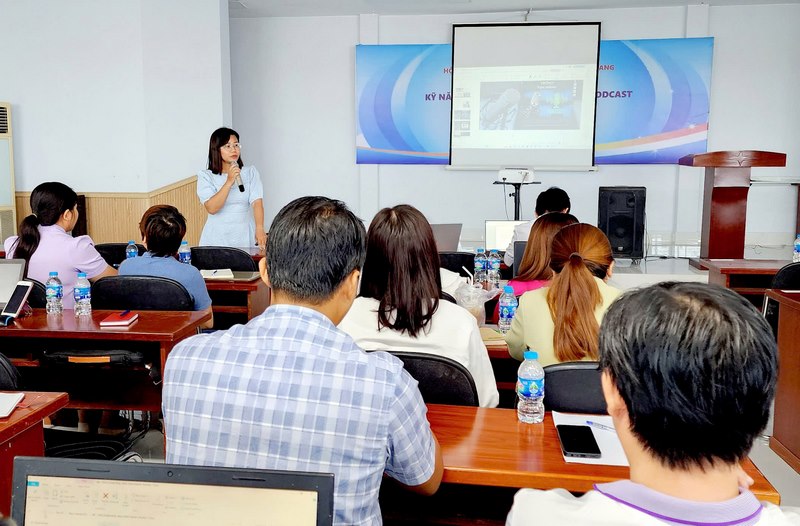
Journalist Dao Thi Hong Linh, Editor of VOV Traffic Channel, Voice of Vietnam, participates in teaching and sharing about journalism. Photo: NVCC
Journalist Dao Thi Hong Linh, Editor of VOV Traffic Channel, Voice of Vietnam (VOV), said: "Through research, I found that AI can generate diverse, logical and comprehensive questions based on input data from previous articles, interviews or social networks to come up with creative questions, even many questions that AI poses that journalists have not thought of or do not have enough data to cover the issue."
In addition, AI is not influenced by personal emotions, so AI questions ensure objectivity during the interview process. AI can also automate some tasks such as scheduling interviews, recording, and transcribing interview content, helping journalists save time and effort. Moreover, AI also helps journalists access and analyze large amounts of data from many different sources for interviews.
However, each interview has different goals, requiring separate question designs. Meanwhile, AI is not very good at determining the goals of the interview as well as human emotions or analyzing body language, so it will not ask questions that "touch" the psychology and emotions of the interviewee.
Therefore, in complex interview situations, requiring intellectual questions, challenges, or questions to make the character "annoyed and speak out" or leading to an interesting interview, requiring the journalist's subtlety and courage, AI is almost unable to do it.
“Instead of letting AI automatically generate all the questions, we can combine AI and humans. AI will act as a support tool, helping journalists create better quality questions by providing AI with a variety of data. Including data from high-quality interviews, to help AI learn and improve its ability to generate questions,” emphasized journalist Dao Thi Hong Linh.
At the workshop “The impact of Artificial Intelligence on journalism: Challenges and opportunities” recently organized by the Vietnam Journalists Association, journalist Le Quoc Minh, member of the Party Central Committee, Editor-in-Chief of Nhan Dan Newspaper, Deputy Head of the Central Propaganda Department, President of the Vietnam Journalists Association said: According to research by media experts around the world, reporters using AI to participate in interviews and signing their names below “AI questions” will not increase trust but will reduce the trust of readers and listeners. The advice of experts around the world is to limit the use of AI to build interview questions or create content.
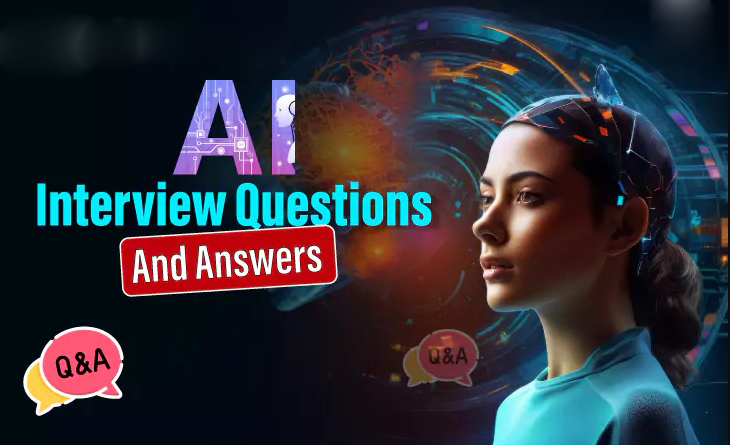
AI can generate diverse, logical and comprehensive questions based on input data. Illustration photo
According to journalist Le Quoc Minh: We need to clearly define that using AI in a stage that is not related to content creation will be acceptable, if used in a simpler perspective such as: data synthesis, spelling check, tape extraction... AI can support, this does not need to be signed as done by AI.
However, journalist Le Quoc Minh predicts that in a short time, the editorial offices of news agencies around the world will issue regulations on the use of AI. Each country and each editorial office will have its own regulations. And there will be no single, identical viewpoint. If there are violations or errors caused by AI, then ultimately the editorial office is the place to control the output. If a reporter writes incorrectly using AI, the responsibility belongs to the editorial office. Because after the reporter writes, it goes through the editing and publishing system, and finally the editorial office must take responsibility. If the editorial office accepts the use of AI, it accepts the risks it brings.
Regarding the interviewer using AI to answer the reporter's questions, journalist Le Quoc Minh said: Journalists need to distinguish whether the answer is generated by AI or not, to avoid putting incorrect information into the content of the article.
“It is very dangerous for reporters to not verify the information after they have answered. We cannot avoid individuals, organizations and individuals using AI to answer the press. The important thing is that journalists need to be alert and distinguish whether the content contains specialized knowledge and in-depth information directly related to the field the respondent is working or managing,” emphasized journalist Le Quoc Minh.
Source: https://www.congluan.vn/ai-thuc-hien-phong-van-lieu-nha-bao-co-mat-di-vai-tro-cua-minh-post311444.html


![[Photo] General Secretary To Lam concludes visit to Russia, departs for Belarus](https://vphoto.vietnam.vn/thumb/1200x675/vietnam/resource/IMAGE/2025/5/11/0acf1081a95e4b1d9886c67fdafd95ed)
![[Photo] General Secretary To Lam meets and expresses gratitude to Vietnam's Belarusian friends](https://vphoto.vietnam.vn/thumb/1200x675/vietnam/resource/IMAGE/2025/5/11/c515ee2054c54a87aa8a7cb520f2fa6e)

![[Photo] General Secretary To Lam arrives in Minsk, begins state visit to Belarus](https://vphoto.vietnam.vn/thumb/1200x675/vietnam/resource/IMAGE/2025/5/11/76602f587468437f8b5b7104495f444d)


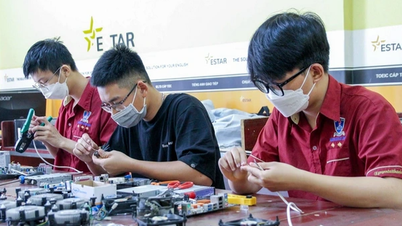



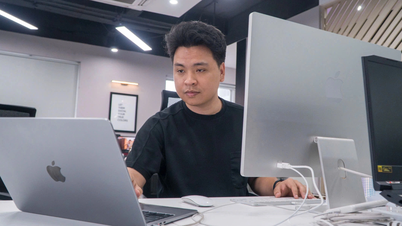
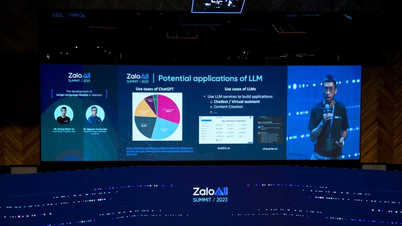

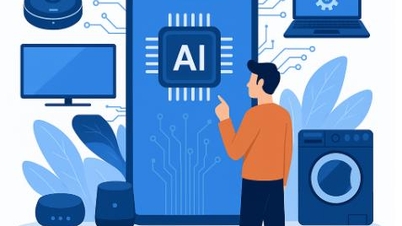





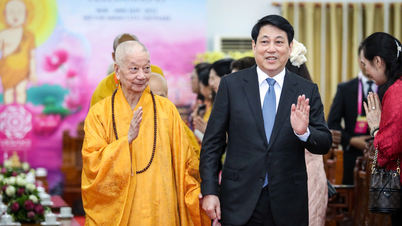
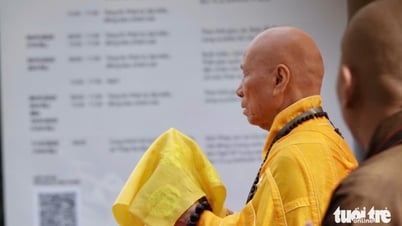

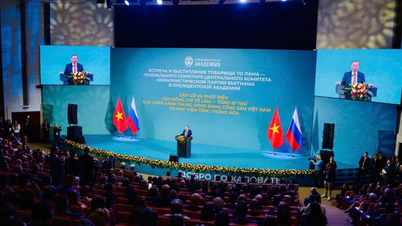











![[Photo] National Assembly Chairman Tran Thanh Man attends the Party Congress of the Committee for Culture and Social Affairs](https://vphoto.vietnam.vn/thumb/1200x675/vietnam/resource/IMAGE/2025/5/11/f5ed02beb9404bca998a08b34ef255a6)





























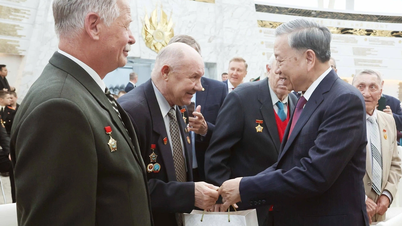
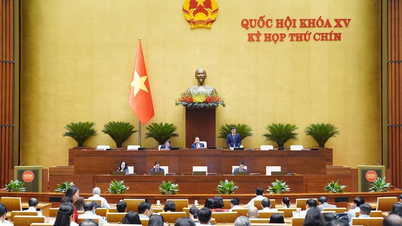

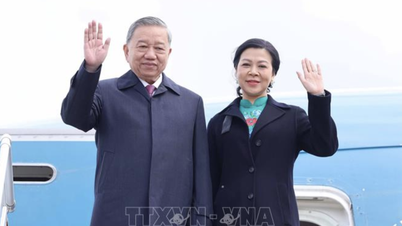











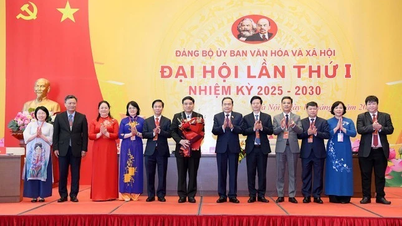




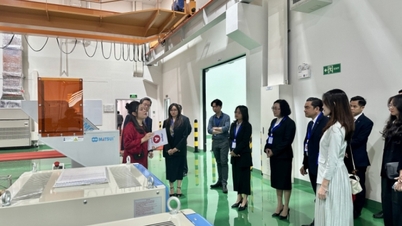



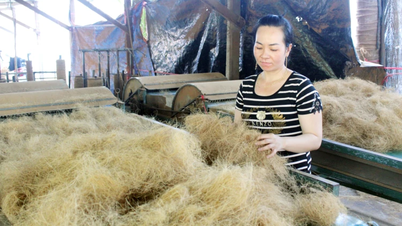









Comment (0)